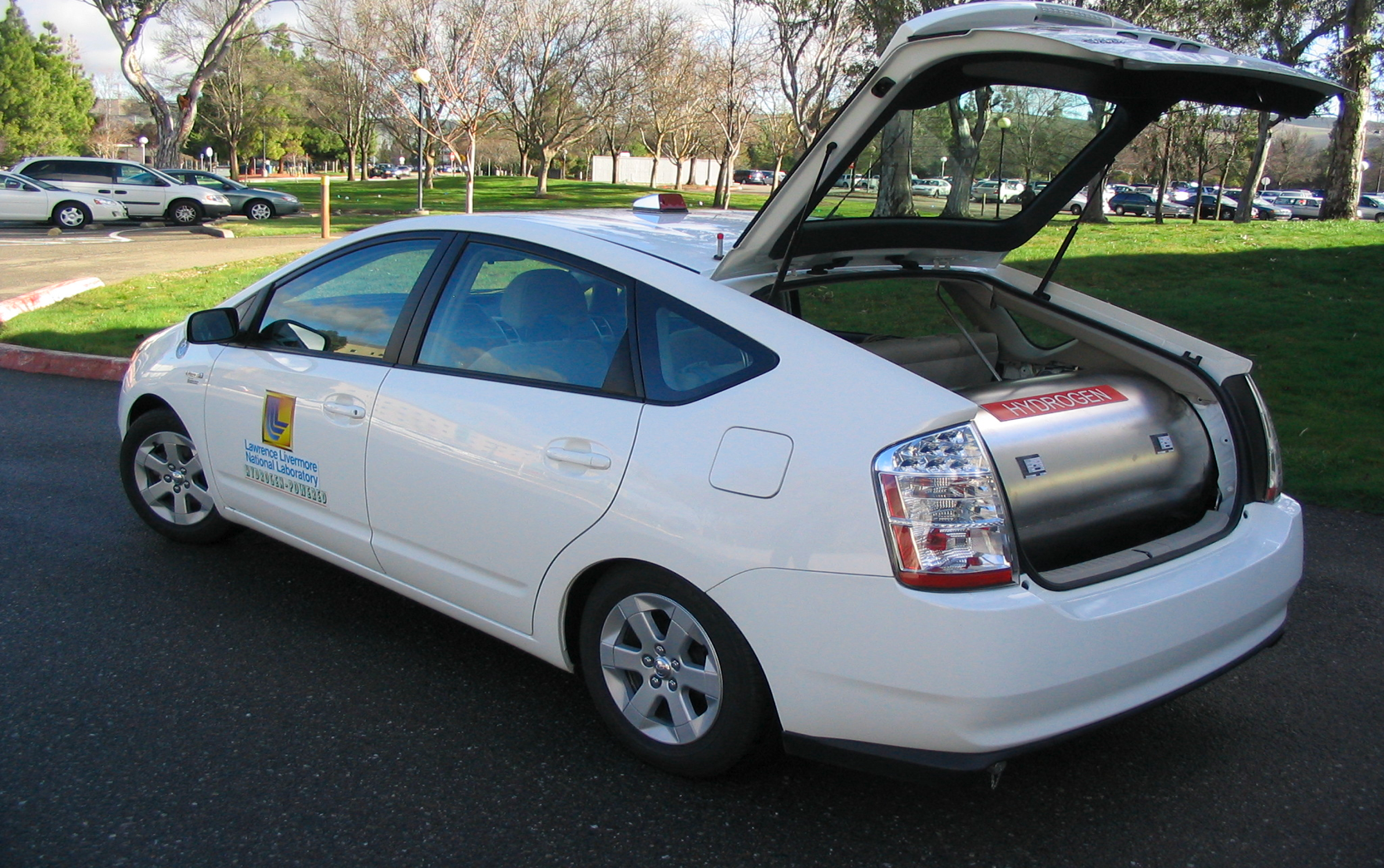Advancing Storage and Fueling Technologies
Hydrogen is not new in the pantheon of petroleum fuel alternatives, but it remains a strong contender. It promises zero tailpipe emissions, a large driving range and fast refueling times. Many energy scientists are optimistic that hydrogen-burning vehicles will reduce the nation’s energy consumption and curb the release of greenhouse gases such as carbon dioxide. “Increasing use efficiency is an important first step but may not be enough for steep reductions in petroleum dependence and greenhouse-gas emissions,” says Lawrence Livermore National Laboratory scientist, Salvador Aceves. “We need to advance to a carbonless energy system using hydrogen fuel.”

As California rolls out more hydrogen fueling stations and new hydrogen vehicles roll into showrooms technical issues such as storage, metering and supply chain remain. Because hydrogen is such a small molecule, it is difficult to store compressed hydrogen in the large quantities needed to provide the driving range achieved by gasoline- and diesel-powered vehicles, despite hydrogen’s stellar fuel efficiency. Most prototype hydrogen vehicles use compressed hydrogen stored at room temperature and high pressure. Cryocompressed hydrogen storage developed at LLNL, the only technology that meets 2015 DOE targets for volumetric and gravimetric efficiency, holds a key to a bright hydrogen future.
As a Department of Energy national laboratory, LLNL has long been involved in research and development of alternative energy technologies for transportation, including hydrogen fuel. LLNL began research in the 1990s on pressurized cryogenic hydrogen storage tank designs and laid the groundwork for several CRADA collaborations between 2008 and 2013, including a long term collaboration with BMW. The BMW collaboration began in 2008. Successes have included an experimental Toyota Prius hybrid vehicle that drove to a new world record: the longest distance on a single tank of hydrogen—over 650 miles! Recent hydrogen storage advancements at LLNL include the installation of a liquid hydrogen pump and extension of tank endurance—holding liquid hydrogen for six days without venting any of the fuel! BMW has since demonstrated integration of hydrogen technology to their fleet. In FY14, LLNL and BMW Group renewed their commitment to hydrogen transportation with another CRADA to make the future hydrogen economy a reality. This project was funded by the DOE Hydrogen and Fuel Cells Program.

